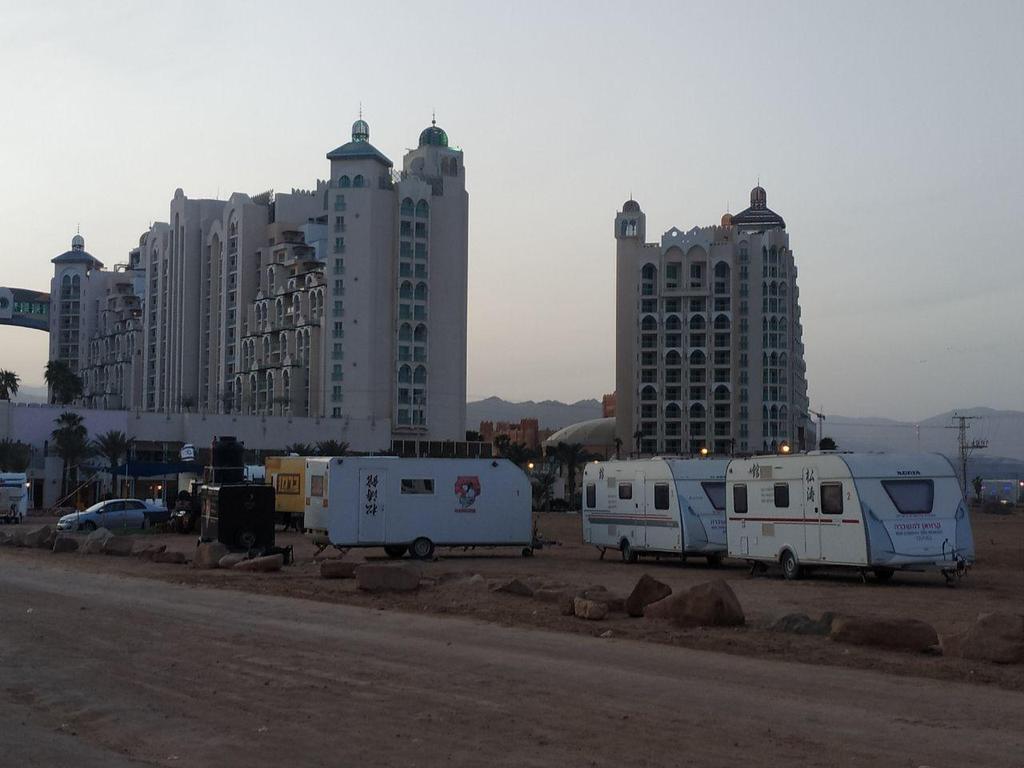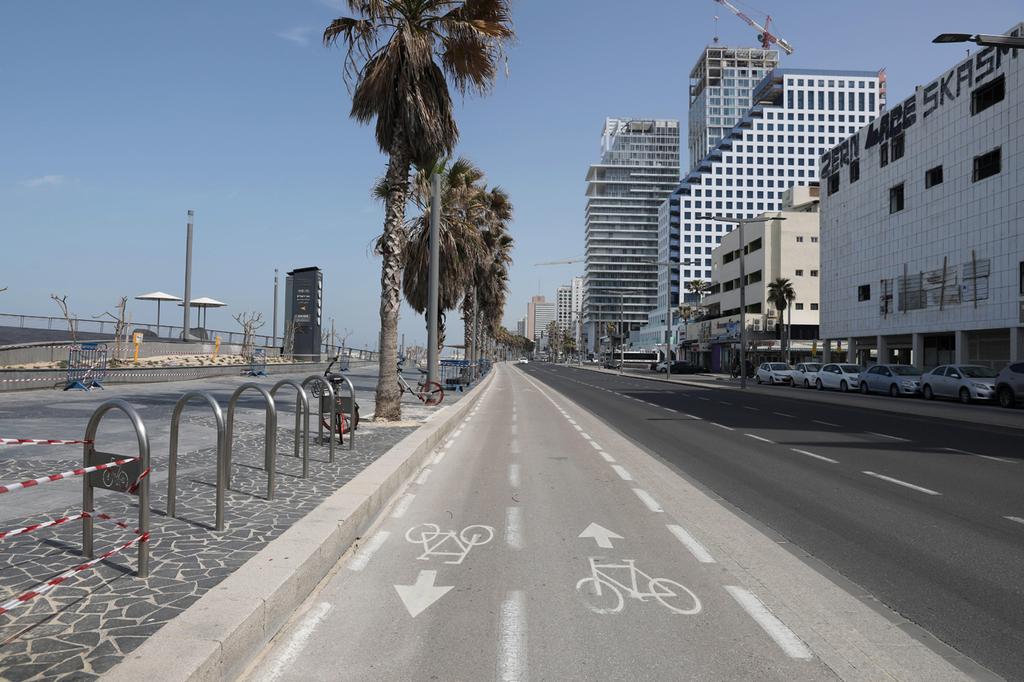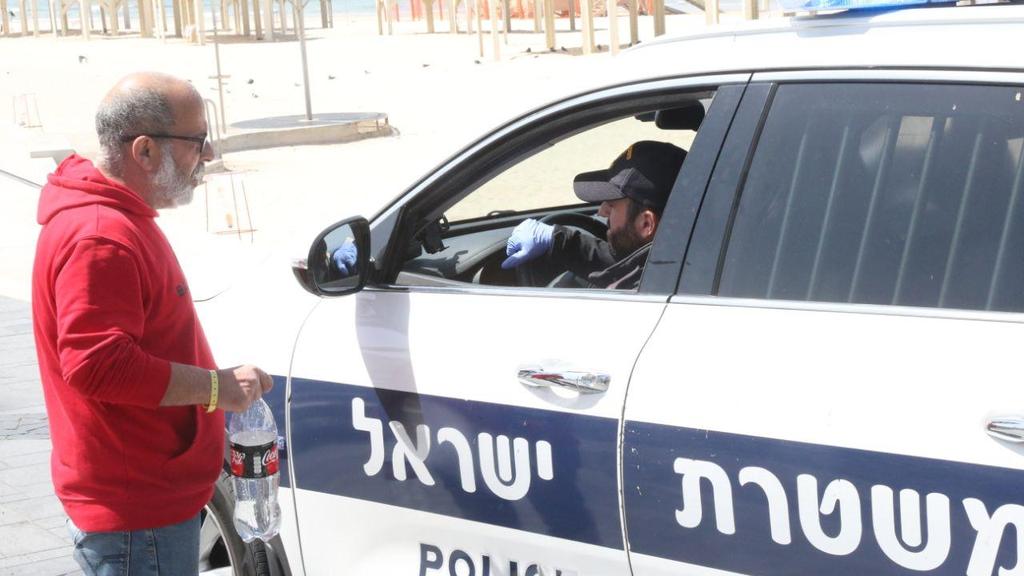Getting your Trinity Audio player ready...
Israel's normally bustling city streets were near deserted on Thursday, less than a day after new strict restrictions on movement took effect as part of the efforts to fight the coronavirus outbreak.
The new emergency regulations, which went into effect at 5pm Wednesday ban people from moving more than 100m from their homes except to go to work, buy food and medicine or receive medical assistance.
The southernmost city Eilat has banned entry as part of the battle against coronavirus. Police roadblocks have been erected at the two entrances to the city via Route 12 and Route 90 to examine people wishing to enter.
The city council has also banned entry to caravans and anyone planning to stay on its beaches now that its hotels have been closed.
Eilat Mayor Meir Yitzhak Halevi made it clear that the city will not allow the entry for coronavirus patients, who he said could "jeopardize the city's residents and its status as an international tourism destination and resort capital of Israel."
Halevi said that Defense Minister Naftali Bennett reassured him that there was no such intention.
3 View gallery


Eilat has banned the entrance of caravans to the city and its hotels are all closed
(Photo: Meir Ohayon)
In Tel Aviv, the promenade seemed emptier than ever. Few people were seen in the area, and those not on their way to work or to the supermarket were approached by police and told to return home immediately.
Police patrol cars were operating throughout the city, using loudspeakers to remind passersby of Health Ministry directives to remain at home.
On the beachfront, the lack of people was clearly evident on a strip normally packed with tourists and locals alike.
"There are fewer people here, they are afraid to go out," says . Every day people are running, doing fitness, exercising - and nowadays there is nothing," Shiran Badui, the manager of a boardwalk gas station, told Ynet.
Nonetheless, there were still quite a few people jogging or walking their dogs on Rothschild Boulevard in the center of the city, although the new guidelines only permit recreational activity up to 100 meters from home.
And despite regulations prohibiting it, cafes were continuing to sell takeaways to customers. Police also set up impromptu checkpoints at several locations, including Yarkon Park and the Ramat Gan Stock Exchange complex, where they randomly checked drivers.
As well as ensuring that no one was violating their quarantine, police also warned passersby to return home if they did not have any vital reason for being outside.
While the streets of nearby Bnei Brak were not busy, there were quite a few people walking around, as opposed to the other cities in the center of the country.
Police and inspectors were also in action in Rishon Lezion on from Thursday morning, placing roadblocks in most neighborhoods in the city. In the morning hours at least, most residents who did not go to work remained in their homes and the streets appeared empty.
Authorities were also enforcing regulations in the Arab communities. At the entrance to Baka-Jatt, police officers stopped drivers to verify that they were on their way to work and anyone who was not was told to return to home.
Petah Tikva municipality meanwhile was exploring the possibility of enforcing the regulations from the air.
As part of municipal action to prevent crowds from gathering, Mayor Rami Greenberg directed the city's defense department to move ahead with the purchase of a drone. The drone will enter a test phase, the drone will access various points throughout the city in the coming days and warn crowds to disperse.



